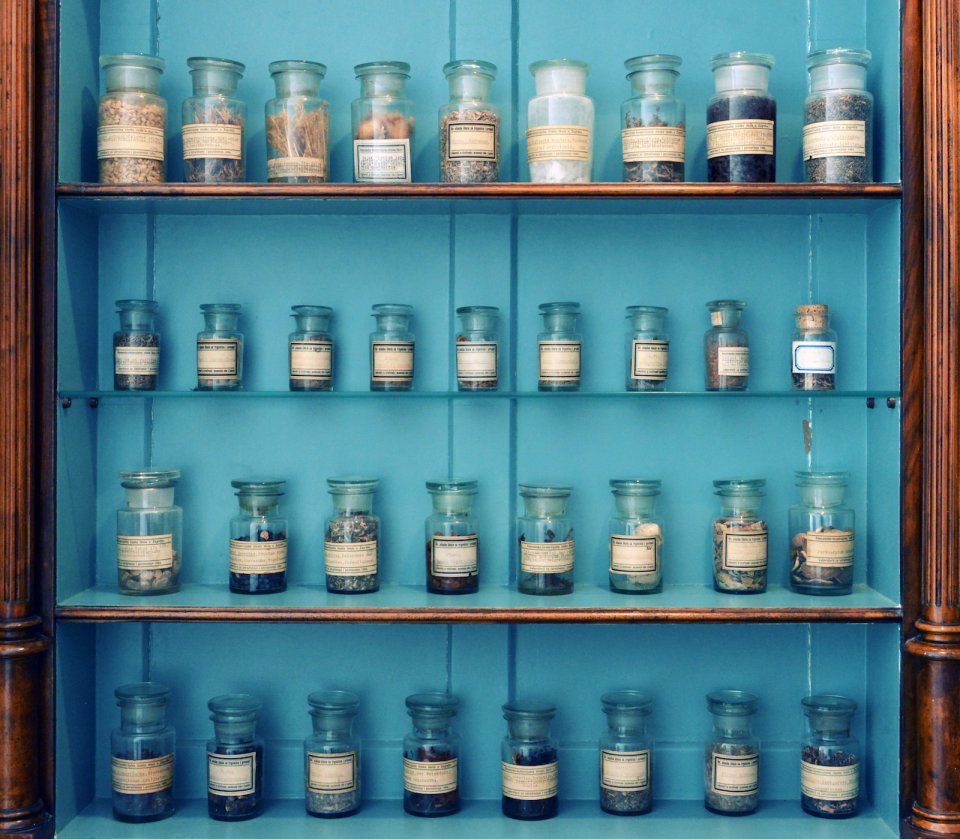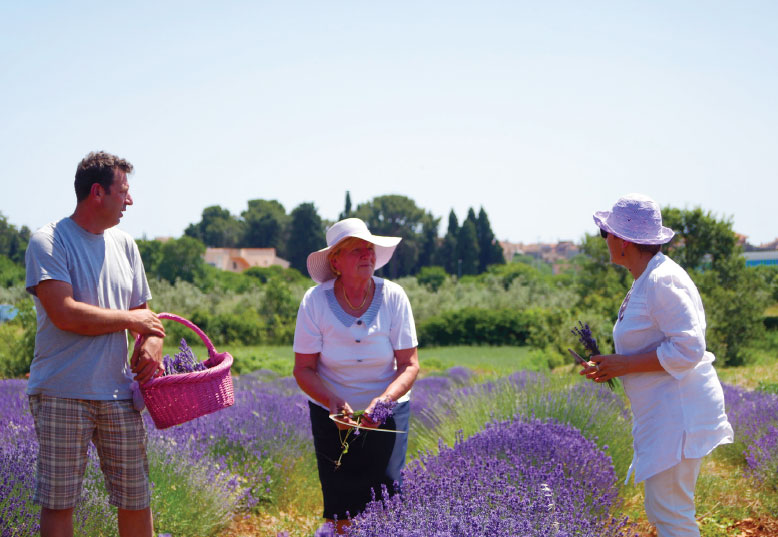
The subject of this research is aromatic, medicinal and spicy cultures as part of cultural heritage and tradition. The research goal is to examine the possibilities of developing cultural, rural, health and wellness tourism based on cultural heritage. All these forms of tourism are developing rapidly because they have an important economic, social, cultural, educational and scientific role. Istria as part of Croatia belong to the Mediterranean area, the cradle of aromatic, medicinal and spicy cultures that can significantly contribute to the creation of new tourist attractions and product innovations.
The landscape is one of the most important elements of the tourism offer and the new aromatic plantations will raise the level of experience of nature. This implies the ecological cultivation of aromatics, which creates the conditions for other stakeholders to get involved in the process of organic production and become a source of rural development. Sustainable tourism includes all forms of tourism that respect all the natural, constructed and cultural environment of the host country and the interests of all parties involved. Sustainable tourism planning should respect the rights and needs of local people, lifestyles and culture and their right to influence the development of local resources.
In the recent period, the understanding of the relationship between tourism and culture has undergone certain changes, as a broader understanding of products and production has changed, and thus only the understanding of culture as a product. Focusing on local traditions and cultures with an understanding of global change in the world will form the basis for the development of sustainable tourism and heritage. The modern visitor shows interest in cultural heritage and is an increasingly common motive for traveling. In this way, it contributes to the overall offer of the tourist destination, raising the level of quality of cultural, accommodation, catering and tourist services and encouraging the production of organic food, indigenous products, preservation of local identities and traditions, including them in the modern brands of the new so-called sustainable tourism.
21st Century tourists are looking for emotion and a well-presented tourist destination influences tourists' awareness and contributes to arousing positive feelings, joy and new cognition. It is precisely these forms of tourism, that is, creative use of traditional heritage by tourists that prolongs the memory of the destination. It makes the feeling more intense and compelling, and understanding the life of the local community easier. If we want to take a quality step in the development and creation of new tourism brands and products, we need to understand the multidisciplinary nature of the production, processing and distribution of aromatic and medicinal plants in Istria. This will support the launching of new projects that are starter for the development of new activities in agriculture, industry and tourism, whose implementation will increase the region's offer.
Organic cultivation of aromatics will create conditions for other stakeholders to become involved in the process and thus be a source of social, economic and cultural development. Education of the local population is one of the first steps to awaken awareness of the creation of something new and significant for the individual and the environment in which he lives, which is confirmed by this research. Awareness development and education of all stakeholders are the primary impetus for production and can significantly accelerate the development and growth of aromatic plantations. A development strategy should definitely be created to avoid the possibility of over-planting and flooding the market.
The development of such projects creates preconditions for the development of wellness tourism which is expanding. Initiatives are launched for the branding of Istrian wellness, which could be a factor in raising the competitiveness of Croatian tourism. The tourism product, attractiveness and authenticity as key concepts through the development of various initiatives related to aromatics open up a number of opportunities significant for socio-economic progress. Innovation as one of the key concepts in 21st century tourism, by creating aromatic products as a part of cultural heritage, it is necessary to recognize their contribution to a new image of the destination and good business opportunity.
Dino Buršić, dinob@sumins.hr, https://sumins.hr/
permanent exhibition of the pharmacy exhibition in Istria; http://www.ppmi.hr/hr/muzej/stalni-postav/

lavender field in Istria; http://www.svijet-biljaka.hr/index.php/hr/nasa-polja/lavanda
